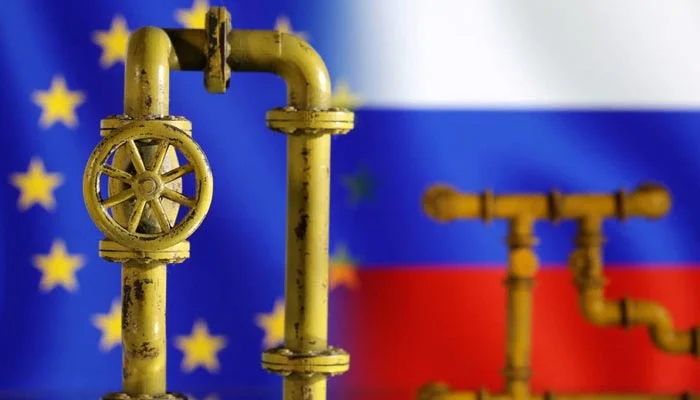- Russia can send gas either using Central Asian infrastructure or Iran.
- Moscow ready to resume gas supplies to Europe through.
- Moscow discussing higher supplies of its gas to Kazakhstan and Uzbekistan.
Russia can send its natural gas to the markets of Pakistan and Afghanistan, Russian Deputy Prime Minister Alexander Novak told state TASS news agency.
Novak said that Russia can send gas either using the infrastructure of Central Asia or in a swap from the territory of Iran.
On December 5, Pakistan’s State Minister for Petroleum Musadik Malik said that talks with Russian private firms are underway for the import of Liquefied Natural Gas (LNG). He had added that Islamabad also engaged with Russia’s state LNG producers.
The state minister said that significant progress has been in talks over the pipeline projects with Moscow.
During talks on the gas pipeline projects, Moscow asked Pakistan to first honour its commitment to the flagship project of the Pakistan Stream Gas Pipeline (PSGP) to be laid down from Karachi to Lahore, Punjab.
In their response, the Pakistani team proposed to change the model of the PSGP project. The Russian side said that the model of the project under GtG (government-to-government) arrangement had already been settled, save for some clauses of the shareholding agreement, which would soon be finalised.
Meanwhile, on September 18, Pakistani Defence Minister Khawaja Asif also said “Russia has proposed its gas pipelines infrastructure has been extended to Central Asian states which can be extended to Pakistan through Afghanistan to provide gas supplies”.
Russia to resume gas supplies to Europe
Moreover, the Russian deputy prime minister said that Moscow is ready to resume gas supplies to Europe through the Yamal-Europe Pipeline.
“The European market remains relevant, as the gas shortage persists, and we have every opportunity to resume supplies,” TASS cited Novak as saying in remarks published by the agency on Sunday.
“For example, the Yamal-Europe Pipeline, which was stopped for political reasons, remains unused.”
The Yamal-Europe Pipeline usually flows westward, but has been mostly reversed since December of 2021 as Poland turned away from buying from Russia in favour of drawing on stored gas in Germany.
In May, Warsaw terminated its agreement with Russia, after earlier rejecting Moscow’s demand that it pays in roubles.
Russian supplier Gazprom responded by cutting off supply and also said it would no longer be able to export gas via Poland after Moscow imposed sanctions against the firm that owns the Polish section of the Yamal-Europe pipeline.
Novak also reiterated that Moscow is discussing additional gas supplies through Turkey after a creation of a hub there.
He also said that Moscow expects it will have shipped 21 billion cubic metres (bcm) of liquefied natural gas (LNG) to Europe in 2022.
“This year we were able to significantly increase LNG supplies to Europe,” Novak said. “In the 11 months of 2022 they increased to 19.4 bcm, by the end of the year 21 bcm are expected.”
In a wide-ranging interview with the TASS agency, parts of which have been published throughout the weekend, Novak also said that Russia has agreed with Azerbaijan to increase gas supplies for its domestic consumption.
“In the future, when they increase gas production, we will be able to discuss swaps,” he said.
Moscow is also discussing higher supplies of its gas to Kazakhstan and Uzbekistan, he said.

 Latest News3 days ago
Latest News3 days ago
 Uncategorized3 days ago
Uncategorized3 days ago
 Latest News3 days ago
Latest News3 days ago
 Latest News3 days ago
Latest News3 days ago
 Latest News3 days ago
Latest News3 days ago
 Entertainment3 days ago
Entertainment3 days ago
 Business3 days ago
Business3 days ago
 Latest News3 days ago
Latest News3 days ago

























